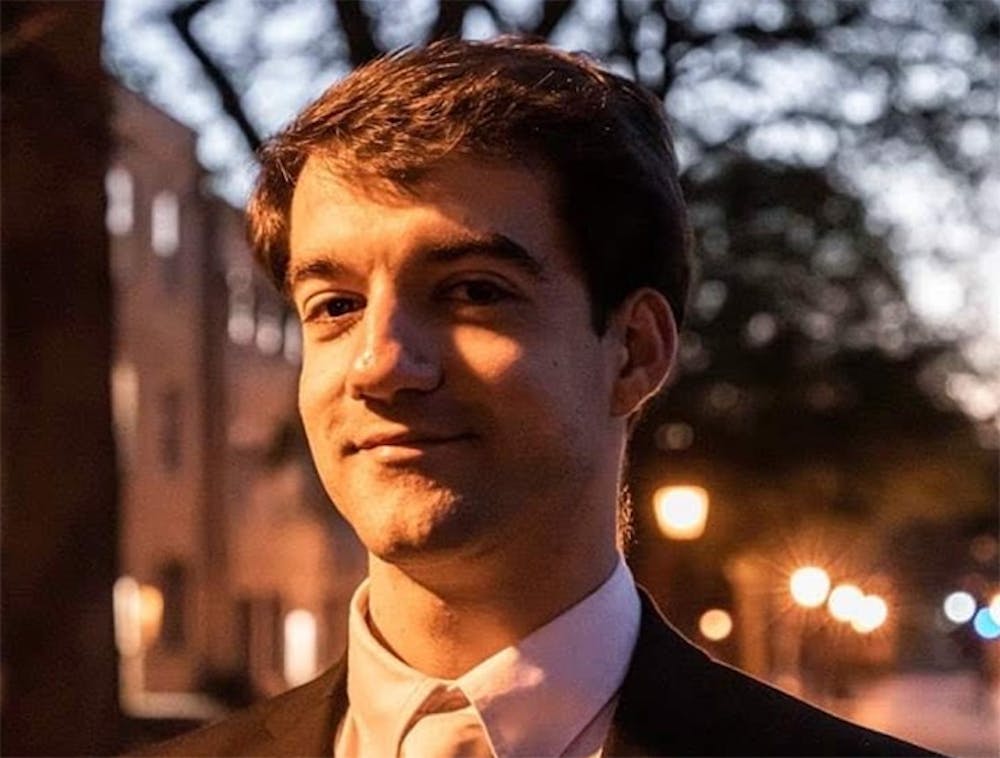Pianist Yonie Penev serves as a musical accompanist for the USC Department of Theatre and Dance, a position he secured over six years ago while he was still an undergraduate in USC’s Arnold School of Public Health.
Penev didn’t start studying piano until he was 11 years old, an age he said he considers “at the cusp” of being too old to pursue piano professionally.
However, Penev said he was able to supplement his public health major with a piano performance certificate, which enabled him to study piano with Joseph Rackers, a professor at the USC School of Music at the time. With Racker’s instruction, Penev said he overcame many of the technical obstacles associated with his relatively late start.
“I came into USC as a minor with a lot of technique issues,” Penev said. “Dr. Rackers was able to help me fix that.”
In addition to technical guidance, Rackers gave Penev more general advice that influenced who he is as a musician, Penev said. Along with “always be professional,” one piece of advice Rackers instilled in Penev is the importance of slow and steady progress.
“[Rackers] said good progress is like stacking sheets of paper on top of each other one at a time,” Penev said.
This analogy — stacking individual sheets of paper on top of one another — is laborious by design. Penev is blunt about how it necessitates hundreds, if not thousands, of hours of hard work by the student.

“It's sort of straightforward,” Penev said. “Most of the time, it's going to feel like hard work. You just have to hunker down and just get into the grind.”
Rackers said he attributes Penev’s rapid musical growth to his ability to get into the grind.
“He’s a really hard worker, and people can come a long way even if they don’t start playing the piano very young, if they work hard enough and practice as diligently as [Penev] did,” Rackers said.
While the paper stacking analogy demands hard work from the student, it also requires a more subtle, but equally essential, quality: patience.
“You put one sheet down, and it doesn't look like a big stack,” Penev said. “But that's how you're supposed to do it. Really slow progress. Being very patient with yourself. And music definitely has taught me to be more patient than I think I need to be with myself.”
Continuing with the analogy, if lasting progress comes from hard work, then patience can be thought of as the mortar that holds the hypothetical paper monoliths together; Penev’s application of patience extends beyond himself.
As a relatively new music teacher at Freeway Music in Irmo, Penev has already gained a reputation for being a patient and positive instructor who “meets the kids and the students where they’re at," Laurel McCallum, office manager for Freeway Music in Irmo, said.
These two qualities, hard work and patience, will be especially important for Penev over the next few years, as he said he plans to make a “major career shift” by applying to USC for a graduate degree in counseling.
“I feel like I have other interests, and the human mind and relationships and having an empathetic connection with people is something that I'm interested in,” Penev said. “That’s my current plan.”
Rackers said not only would the counseling program benefit from gaining "somebody that immediately connects with people," but the USC dance program might also be able to keep its accompanist.
While his professional focus might be shifting away from the piano, Penev said he plans to keep music in his life.
“I still love it, and I always want to be involved in it in some capacity,” Penev said. “Either like, with side gigs, just for fun or just practicing repertoire on my own and occasionally getting with friends and playing together.”
Penev completed his Master of Music in piano performance at USC in May 2020. You can listen to his master's recital on YouTube. He is also performing live at the Koger Center with the USC Department of Dance for its April Dance Showcase on April 1, 2021.

